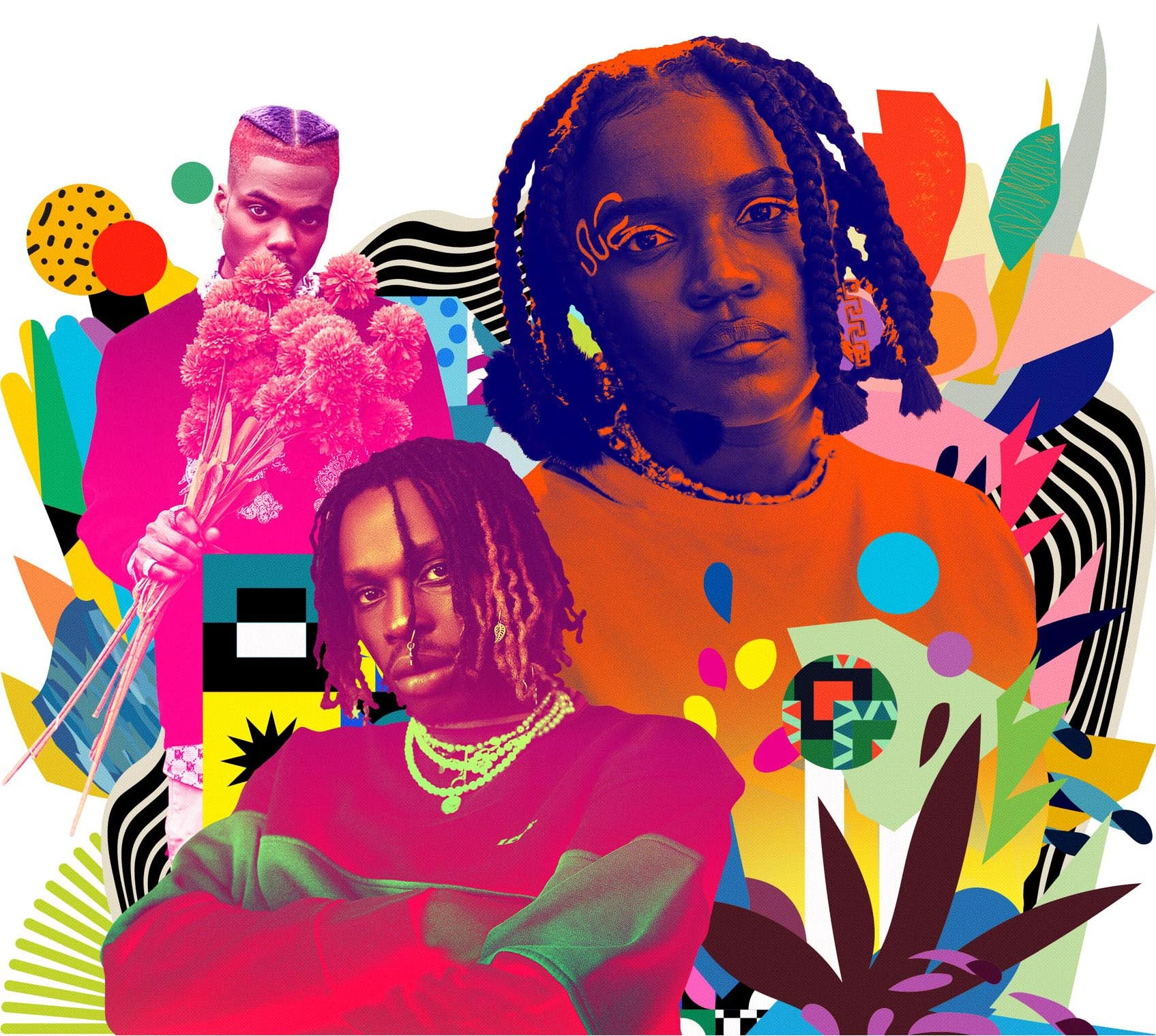The Covid 19 pandemic was a global crisis that hit the world at an existential level and left the world at a crossroads last year. But some good came from this pandemic, like working from home, virtual meetings, automated home delivery of goods and services and finally, media streaming particularly, music streaming.
Although the Nigerian music industry is largely a download market. The coronavirus pandemic was the best thing that happened to the Nigerian music industry in terms of streaming, as the population of streamers increased due to lockdown restrictions and isolation directives placed by the NCDC and enabled by the Nigerian federal government. So, this meant that Nigerians were at home during this challenging period.
The shift in streaming was also reflected in other industries in the Nigerian entertainment scene. A vast majority of Nigerian artists like Burna Boy, Wizkid, Davido, Fireboy DML, Omah Lay and many others released quality bodies of work in 2020. These materials did great numbers on all major streaming platforms such as Spotify, audiomack, apple, boom play and a host of others.
Numbers are a powerful entity in the music business and there is a need to trace the reckon of numbers in the past and acknowledge the present veneration of streaming.
The 1950s and 60s was the era where numbers became the driving force of the global music industry and were evident in society. There was the Beatles, Elvis, Jackson 5 and of course the “King of Pop” Michael Jackson who made history with his “Thriller” album which is the best-selling album of all time. In this era of music, the consumption of music was via vinyl and jukeboxes.
But the 80s saw the rise of the Discman special shout out to Sony corporation for the dynamic innovation which enabled mobility for consumers. The 90s brought the boombox device which helped to spread the gospel of hip-hop across boards and it became an identity for hip-hop heads then, what a moment in time in music history.
The 90s was the golden age of hip-hop globally and the power of numbers skyrocketed like Elton John’s “Rocket Man” on a star trek cruise. The emergence of the internet in the late 90s and early 2000s as a result of the dot.com boom led to music piracy and it became a serious issue but where there is a difficulty there is an opportunity.
So, Sean Parker an American Entrepreneur with the help of Shawn Fanning founded Napster, a set of three music-focused online services. It became a pioneering peer-to-peer (P2P) file-sharing Internet software that emphasized sharing digital audio files, typically audio songs, encoded in MP3 format. It was launched in 1999, in Hull, Massachusetts.
Napster’s file-sharing network allowed users to upload and download MP3 files freely and it broke all music industry conventions with its time-bound innovation. By 2005 numbers had taken a significant hit globally due to piracy and multiple means of accessing music. This led to huge losses for artists, labels and other vested parties.
The internet at that time in Nigeria was on the rise, a lot of music blogs emerged, social media sites were popping up in the country and the famed Alaba international market was getting a serious run for their money. It is noteworthy to state that Alaba international market helped to shape the current Nigerian music industry but that is a tale for another time.
Music distribution in the past was pretty easy, the artist creates the music, the engineer records and burns it on a CD and then gets it to the distribution companies that package the CDs and then give it to the trucking companies and the trucking companies then take it to the point of sales for all to consume.
But now it has become abridged, streaming services disrupted the market and contributed to the fall in revenue from $14.6 billion in revenue in 1999 to $6.3 billion in 2009 for the United States. CDs and single-track downloads were not selling because contents were freely available on the Internet. This resulted to record labels being invested more in artists that they believed were “safe” for the charts and music became more appealing to producers than bands with unique sounds. In 2018, however, music streaming revenue exceeded that of traditional revenue streams (e.g. record sales, album sales, downloads). 2017 alone saw a 41.1% increase in streaming revenue alone and an 8.1% increase in overall revenue.
However, CDs are still selling though not as much anymore. This can be attributed to the fact that the majority of people now live online. This is the generation of digital distribution; top companies are buying into this. Artists through their labels or authorized dealers now place the soft copy of their works on these digital platforms for streams and last year alone, streaming accounted for about 64% of the global direct music revenue.
There is a need to point out that there is a growing bug called “streaming fraud” and this is where the digital distribution platforms help police the system and a lot of these platforms who are heavily staked in this business have leverage because of their power, reach and influence. They help in music tracking, authentication of numbers, certifications and revenues. So, they use these resources to fight streaming fraud, though some artists still get away with it.
It is paramount to elucidate that record labels have a lot of power in the global music industry, they influence streaming platforms, they have rights to a lot of master recordings of artists, they have shares in new social media platforms like Triller and a host of others. The three big record labels in the world Sony, Universal and Warner are now back in Nigeria though they left in the 90s and there is a lot of money to be made.
Streaming is not yet the biggest thing in Africa, it is still growing. There was an increase in 2020 in the (thousands). Audiomack had a huge role to play, as they offered people premium music for free. The power dynamics in the Nigerian music industry is changing and beginning to gradually evolve with the times.
Streaming revenue is one of the largest driving forces behind the growth in the music industry. In an interview, Jonathan Dworkin, a senior vice president of strategy and business development at Universal, said that “we cannot be afraid of perpetual change, because that dynamism is driving growth.”
So, I say welcome to the future or should I say we are already there.










